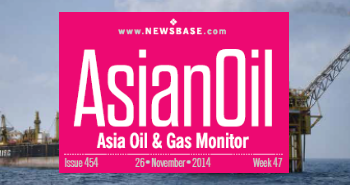Japan Airlines, Airbus join sustainable aviation fuel joint venture

Japan Airlines (JAL) and European aircraft manufacturer Airbus have joined a Japanese joint venture aiming to produce bioethanol from domestically sourced woody biomass for use as sustainable aviation fuel (SAF), the airline announced on March 17.
The partnership is expected to support JAL’s objective of replacing 10% of its conventional jet fuel with SAF by 2030. This is in line with the Japanese government’s target. It will also contribute to Airbus’s long-term ambition of achieving net zero carbon emissions by 2050.
As part of the initiative, JAL will work to establish domestic biofuel supply chains, while Airbus will support efforts to secure international certification for the biomass-derived fuel to qualify as SAF.
The project was initially proposed in February 2023 by Nippon Paper Industries, trading company Sumitomo Corp., and bio-refining specialist Green Earth Institute. In February 2025, the firms agreed to form a joint venture, Morisora Bio Refinery, to advance development of a domestic SAF production network.
Morisora is due to be formally launched in March, with plans to start bioethanol production in 2027 at Nippon Paper’s Iwanuma Mill in Miyagi prefecture, northeastern Japan. Commercial-scale operations are anticipated to begin around 2030.
The bioethanol will be primarily used as feedstock for SAF, though it may also be utilised in other applications, including blending with petrol, fuel cells, cosmetics, and as a raw material in chemical production.
Japan is actively advancing SAF initiatives to reduce greenhouse gas emissions in the aviation sector. But so far no commercial production has started. However, Cosmo Energy Holdings is due to start supplying 30,000 kg of the fuel annually from its Sakai refinery in Osaka this April, utilising used cooking oil as feedstock.
The government plans to produce 1.7mn kg of SAF annually by 2030. To support this goal, it has allocated approximately JPY340bn (around $2.2bn) over five years, starting from fiscal year 2025, to bolster SAF manufacturing and supply chain development.
Japan’s Ministry of Economy, Trade and Industry (METI) is proposing stricter regulations for SAF producers. These regulations aim for a minimum 50% reduction in greenhouse gas emissions compared to conventional jet fuel. Additionally, METI plans to establish obligations to develop and promote new raw materials and production technologies for SAF.



Follow us online